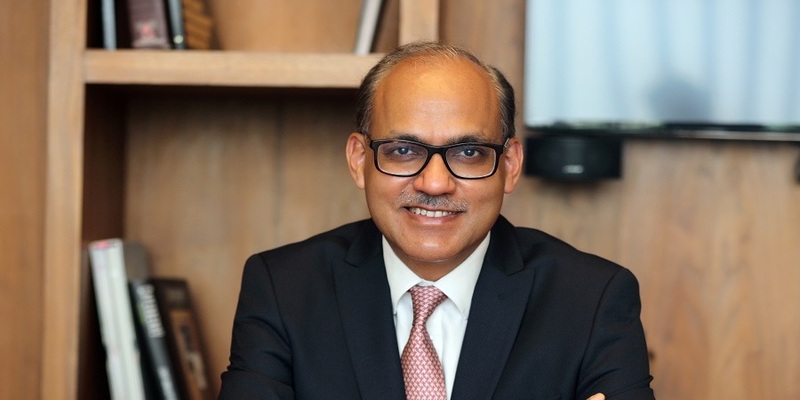BANKS
Covid jams bank loan growth
Banks could not generate new loans, except for refinance opportunities, as all branches remained closed in the first nationwide lockdown.
Banks could not generate new loans, except for refinance opportunities, as all branches remained closed in the first nationwide lockdown.

The outbreak of the coronavirus and the resultant lockdown jammed the loan growth of banks, particularly the retail loans. Home loans, which had a healthy double-digit growth before the pandemic, is now only hinging on refinance opportunities.
Banks could not generate new loans, except for refinance opportunities, as all branches remained closed in the first nationwide lockdown. This ran for three weeks starting 24 March. There is also no demand for fresh loans.
Retail loans from March to end of August decelerated by 0.2% to Rs 2548113 crore. Home loans, the mainstay of credit for both private and public sector banks, slackened its pace at 11%, while during the same time last year it was growing at 16%. From March to the end of August, home loans for banks grew only by Rs 10,537 crore to Rs 13,49501 crore. Personal loans grew by Rs 5,099 crore to Rs 7,31211 crore. All the other segments degrew as banks turned cautious on unsecured credit and borrowers stayed away from additional leverage.
Vehicle loans, credit cards, and loans for education fell by Rs 840 crore and Rs 880 crore to, respectively, according to the consolidated bank credit data released by the Reserve Bank of India (RBI) on 30 September.
Data on sectoral deployment of bank credit, collected from select 33 scheduled commercial banks, accounted for about 90% of the total non-food credit deployed by all scheduled commercial banks.
Retail credit saw a sharp fall across banks, with home loans and other personal segments slowing down. For the State Bank of India (SBI), which controls the lion's share of the bank retail credit in India, the segment grew by a paltry Rs 1,211 crore in first quarter of this fiscal over Q4 of FY20. This was puffed up in part by the high growth in the bank's unsecured personal loans. The individual bank data is till 30 June as the subsequent quarter figures will be announced after 30 September.
Said ICICI Bank MD and CEO Sandeep Bakhshi, 'Loan origination was impacted due to the nationwide lockdown in April and May. The year-on-year loan growth declined and the loan book decreased sequentially, though month-wise trends indicate an improvement as the lockdown has been relaxed.'
For ICICI Bank, the disbursements across home and auto loans decreased by about 65%, and personal loans and commercial business decreased by about 85% in the first quarter ended June compared to the previous quarter. The incremental sourcing during Q1 was primarily to existing customers of the bank.
'Our mortgage portfolio was about 50% of the retail loan portfolio and about 32% of the total loan portfolio, as of 30 June. Of the total mortgage portfolio, home loans comprised about 70%, top-up loans given to existing home loan customers based on their track record comprised 8%, office premises loans are about 5%, and loan against property comprises about 17%,' said ICICI Bank chief financial officer Rakesh Jha, updating the analysts after the fiscal first-quarter results.
The SBI, the biggest player in the segment, saw its home loan book shrink by Rs 422 crore to Rs 4,55443 crore. HDFC Bank only originates the loans and sells it down to HDFC, its sister concern. However, the other two big private players, Axis bank and ICICI Bank, saw their portfolios grow marginally.
Apart from the mortgage loans, the private players saw all their retail portfolios shrink sequentially. People shied away from buying cars and houses. The lockdown also crimped spends on credit cards and personal loans.
HDFC Bank, while releasing its results, accepted that the pandemic and the continued slowdown in economic activity led to a decrease in loan origination, the sale of third-party products, the use of credit and debit cards by customers, the efficiency in collection efforts, and waiver of certain fees. The continued slowdown may lead to a rise in the number of customer defaults and consequently an increase in provisions, the bank said.
The deceleration in the retail loans had started before the onset of the Covid outbreak. The pandemic shrunk the demand further.
Said Chaudhry, 'The bank's total fee income in Q1 of FY2021 was down 38% year-on-year. Almost 60% of the decline was due to lower processing fees on retail loan disbursements, which were down 74%, and card fees down 53% impacted by lower new card issuance-related fees and interchange income.' He was speaking to analysts after the bank's first quarter results.
There are signs of some economic activity taking place despite a surge in Covid caseloads. 'The disbursement across various retail products, which had virtually stopped in the months of April and May, have picked up in June. The disbursements across home and auto loans decreased by about 65% and personal loans and commercial business decreased by about 85% in this quarter compared to Q4. The incremental sourcing during Q1 was primarily to existing customers of the bank,' Jha told analysts.
For bank credit to take off, the next few months will be crucial.
